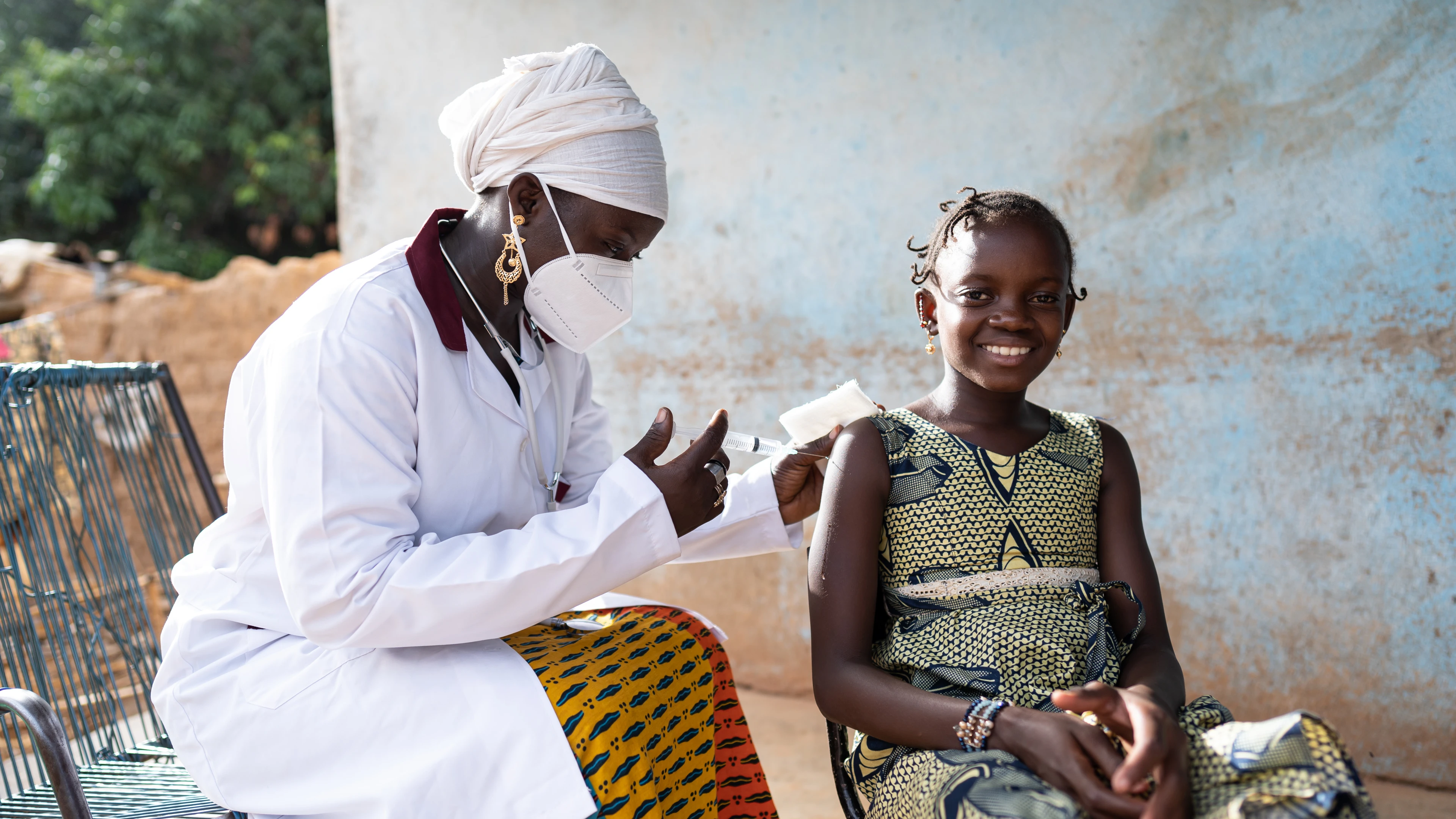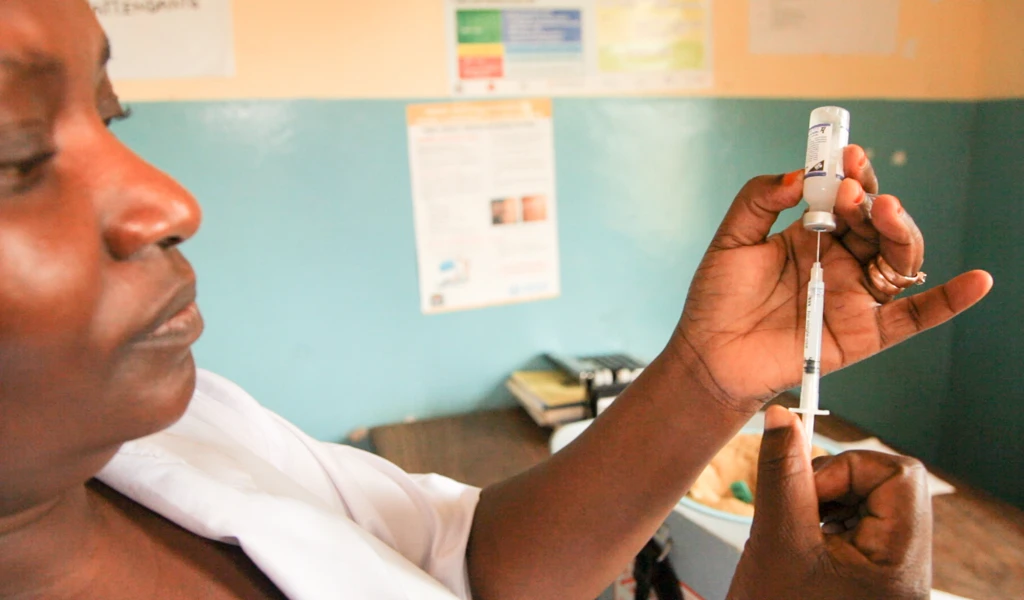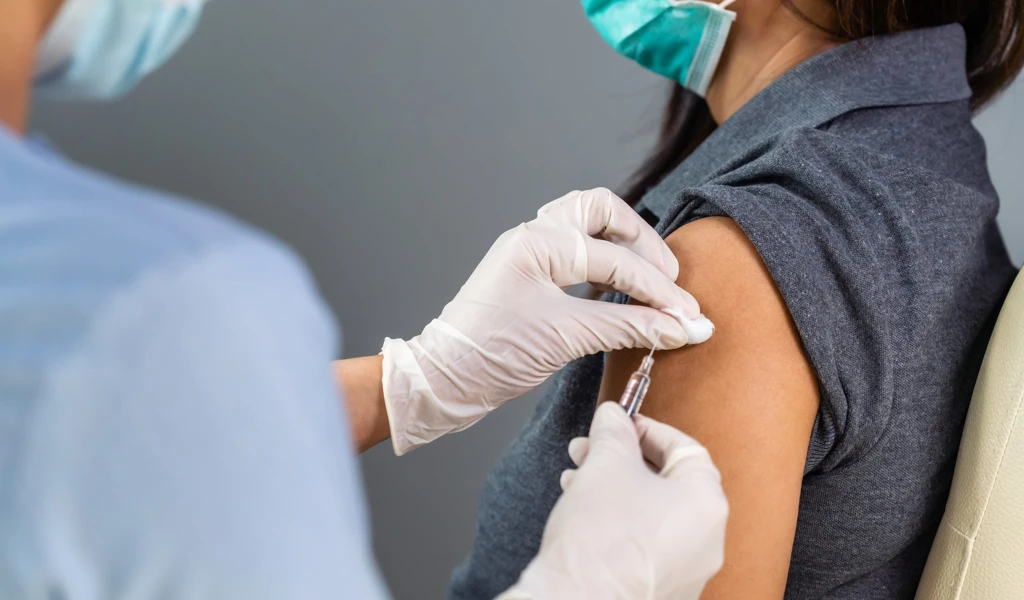CEPI funds project led by Victoria Biomedical Research Institute (Kenya) to assess mix-and-match COVID-19 vaccine boosters in adolescents and adults living with HIV

11 May 2022; OSLO, Norway/KISUMU, Kenya: The Coalition for Epidemic Preparedness Innovations (CEPI) and the Kenya-based Victoria Biomedical Research Institute (VIBRI) today announced a new programme of clinical research—in Kenya, Democratic Republic of Congo, and Rwanda—which aims to evaluate the safety and immunogenicity of homologous and heterologous COVID-19 vaccine booster regimens in adolescents and adults living with HIV. CEPI will provide up to US$12.5 million to assess this "mix and match" booster approach in these populations.
Study design
This Phase 2B study will include adolescents and adults aged 12 to 64 years who are living with or without HIV infection. Participants who have already received homologous COVID-19 vaccination with either Moderna or Pfizer mRNA vaccines, or the vaccines produced by Janssen, Sinovac or Sinopharm will receive a booster of either the Janssen or Novavax vaccines five to seven months after completion of the primary vaccination series. Each study participant will be followed up over an 18-month period. After booster vaccination, investigators will assess safety and immune response at month 6, 12 and 18.
How protective are COVID-19 vaccines in people living with HIV?
Data on the effectiveness of COVID-19 vaccines in people living with HIV are limited and many outstanding questions remain: are people living with HIV a risk population for SARS-CoV-2 infection and COVID-19? Do people living with HIV have reduced immune responses to COVID-19 vaccination, allowing post-vaccination breakthrough infections to occur? Should this population be offered mix and match vaccine regimens to boost their immune responses?
38 million people globally are living with HIV, over two-thirds of whom are in sub-Saharan Africa. Adolescents and young people are disproportionately affected by HIV, with around one in four new infections occurring in this population. The trial will include adolescents from 12 years of age or older, who are an important population not yet sufficiently enrolled in COVID-19 vaccine studies, particularly on the African continent.
Supporting equitable access to vaccines for vulnerable populations
The valuable insights gained from this study will help COVAX (the global mechanism for equitable access to COVID-19 vaccines), vaccine providers, and governments around the world to optimise their vaccination schedules so that they can maximise protection against COVID-19 for people living with HIV.
This is the latest programme to be funded in response to a CEPI Call for Proposals launched in January 2021 which aims to address current gaps in our clinical knowledge of vaccine performance both now and in the long term, in order to expand access to COVID-19 vaccines as part of the global vaccination rollout. Examples of such gaps include assessment of the safety and effectiveness of COVID-19 vaccines in pregnant women, infants and children, and immunocompromised populations, as well as studies on booster doses, length of vaccine efficacy, mix-and-match strategies, and dosing intervals. In response to this Call for Proposals, CEPI is also funding a study of COVID-19 vaccines in immunosuppressed and transplant patients, a project to expand access to BBIBP-CorV in Africa, a clinical trial of mix-and-match combinations of vaccines in Pakistan, and a mix-and-match booster study in Taipei. In addition, CEPI has previously announced funding to support a mix-and-match study led by the University of Oxford, and is supporting trials to evaluate fractional COVID-19 booster shots in multiple countries.
Dr Melanie Saville, Executive Director of Vaccine R&D, CEPI, said:
"To effectively expand access to COVID-19 vaccines around the world, we urgently need to boost clinical research into how well these vaccines work in vulnerable populations, especially in people living with HIV. For example, people living with HIV could have reduced immune responses to COVID-19 vaccination, increasing the chances of breakthrough infections. This study will help to gather the data needed to fill this gap in our understanding and inform how governments and COVAX can optimise their vaccination strategies going forwards to better protect this large vulnerable population of people who are potentially immunocompromised."
Dr Lucas Tina, Board Chair and Principal Investigator of Victoria Biomedical Research Institute (VIBRI) said:
"The COVID-19 pandemic has caused major health, social, and economic disruptions worldwide resulting in an urgent and sustained need to develop safe and effective vaccines and to make them available at scale and equitably across all countries including in Africa. Despite the rapid successes in COVID-19 vaccine development, it is critical to address the existing scientific data gaps on safety, immunogenicity, and efficacy of COVID-19 vaccines in populations such as children and immunocompromised individuals including People Living with HIV/AIDS (PLWHA) who have been shown to be at higher risk of severe COVID-19. Africa is particularly vulnerable given that almost 70% of the HIV positive population live in Sub-Saharan Africa. In addition, data from observational studies consistently show waning immunity and a decline in vaccine effectiveness against SARS-CoV-2 following primary vaccination. Therefore, continued evaluation of vaccine effectiveness after primary and booster vaccinations is critical to address these uncertainties, both for improved coverage of variants of concern and due to global vaccine supply chain challenges. To address the scientific gaps and develop effective COVID-19 vaccination programs, the VIBRI Consortium plans to evaluate the safety and immunogenicity of Janssen Ad26COVS1 and Novavax NVX-CoV2373 COVID-19 booster vaccinations in adolescents and adults with and without HIV infection using a mix and match design in Kenya, Rwanda and the Democratic Republic of Congo as a strategy to ensure sustainable future access to safe and effective COVID-19 vaccines."
This work forms part of CEPI's 5-year plan, published in March 2021, which aims to reduce or even eliminate the future risk of pandemics and epidemics. As part of this plan CEPI is working to strengthen our defences against COVID-19 and reduce the risk of future coronavirus pandemics, by optimizing our current vaccines, addressing variants of concern, developing next-generation COVID-19 vaccines, and initiating the development of broadly protective or universal coronavirus vaccines.
- ENDS -
About CEPI
CEPI is an innovative partnership between public, private, philanthropic, and civil organisations, launched at Davos in 2017, to develop vaccines against future epidemics. Prior to COVID-19, CEPI's work focused on developing vaccines against Ebola virus, Lassa virus, Middle East Respiratory Syndrome coronavirus, Nipah virus, Rift Valley Fever virus and Chikungunya virus — it has over 20 vaccine candidates against these pathogens in development. CEPI has also invested in new platform technologies for rapid vaccine development against unknown pathogens (Disease X).
During the current pandemic, CEPI initiated multiple programmes to develop vaccines against SARS-CoV-2 and its variants with a focus on speed, scale and access. These programmes leverage the rapid response platforms developed by CEPI's partners prior to the emergence of COVID-19 as well as new collaborations. The aim is to advance clinical development of a diverse portfolio of safe and effective COVID-19 candidates and to enable fair allocation to these vaccines worldwide through COVAX.
CEPI's 5-year plan lays out a $3.5 billion roadmap to compress vaccine development timelines to 100 days, develop a universal vaccine against COVID-19 and other Betacoronaviruses, and create a "library" of vaccine candidates for use against known and unknown pathogens. The plan is available at https://endpandemics.cepi.net.
Follow our news page for the latest updates. Follow us via @CEPIvaccines, @DrRHatchett, and LinkedIn.
About VIBRI
Victoria Biomedical Research Institute (VIBRI) is a non-profit organization based in Kisumu, Kenya. providing a platform for global health research, training, and capacity building. This clinical trial will be conducted by The VIBRI Africa Consortium which brings together Victoria Biomedical Research Institute (VIBRI) in Kenya (Sponsor), Rinda Ubuzima, in Rwanda, University of Kinshasa, in the Democratic Republic of Congo (DRC) and ACE Research in Kenya. The VIBRI Africa Consortium has experienced clinical research scientists who have designed and conducted GCP compliant paediatric and adult clinical trials for vaccines and drugs in various indications such as malaria, HIV, tuberculosis, diarrhea, sickle cell disease, ebola, pneumonia, polio among others.
Follow us via Twitter @VIBRIAfrica or on LinkedIn
Media Contacts
CEPI
Email: [email protected]
Phone: +44 7387 055214
Victoria Biomedical Research Institute (VIBRI)
Email: [email protected]
Phone: +254 720 597654/788 065080
Website: https://www.vibriafrica.org


